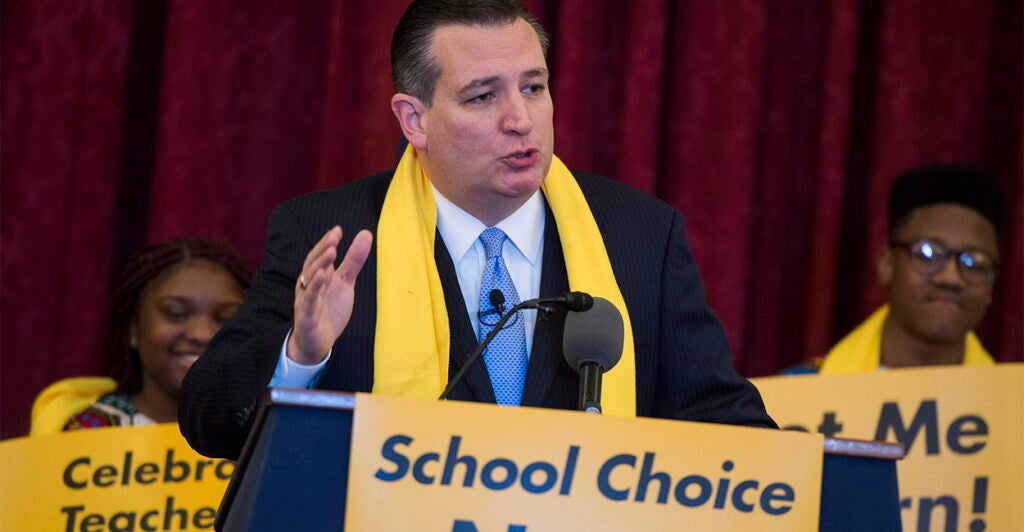In 1988, as an Arizona State Senate candidate, I explained to a PTA group my proposal to allow students to cross K-12 school attendance boundary lines, space permitting. They would then no longer be forced to attend their assigned school if their families thought a different one was better for them. My opponent countered that this notion “had never even been tried, and the reason is, it’s absolutely crazy!” The audience laughed and clapped.
School choice has come a long way since then. Public school open enrollment (allowing children to attend their public school of choice) has been far surpassed by enrollment in charter schools and private schools as well as the increasing numbers of children being homeschooled.
This is thanks to the proliferation of charter schools, tax credits to subsidize private school tuition, educational savings accounts, and additional support for homeschoolers. Many low-income parents in areas where school choice has flourished, like New Orleans, now take for granted their right to select their child’s school.
The COVID-19 epidemic and the disastrous school shutdowns that accompanied it, which the teachers unions insisted upon, inadvertently advanced the cause of education reform. When public school educational instruction moved into homes, many parents were not pleased with what they saw and so became more involved with their children’s education.
The Virginia governor’s race in 2021 also enhanced the roles of parents in education. American Federation of Teachers President Randi Weingarten enthusiastically endorsed a Washington Post article titled “Parents claim they have a right to shape their kids’ school curriculum. They don’t.”
Former Virginia Gov. and 2021 Democratic gubernatorial candidate Terry McAuliffe, who had vetoed nine school choice bills as governor, agreed, saying, “I don’t think parents should be telling schools what they should teach.”
Voters begged to differ. Republican challenger Glenn Youngkin went from a 33-point deficit to a nine-point advantage among education-oriented voters and swept to an upset victory. The dominance of the leftist status quo on Virginia school boards was shattered.
But despite the progress and the pockets of light, it’s way too early for education reformers to declare victory and go home. Unfortunately, our schools as a whole are still doing a wretched job of educating the students entrusted to them.
Our academic achievement scores lag 20 of our peer nations with developed economies. Although America still has an academic elite that produces world-class research and wins prizes, learning levels overall have stagnated for 50 years, ever since teachers unions seized de-facto control of our public school systems.
You see the results everywhere. Just 1 in 3 adults can achieve the 60% pass rate on the very basic American citizenship test. A majority of third graders can’t achieve proficiency in reading tests, i.e., they can’t read. Baltimore, Chicago, and other big-city school systems have dozens of schools in which no third graders have been adequately taught to read.
High schools award diplomas to students with eighth-grade—or worse—educations. Colleges must give remedial instruction before new students can tackle even the most basic courses. Finally, employers complain about poorly educated, untrainable college graduates while tech companies lobby for immigration visas so foreign workers can fill jobs for which no available Americans are qualified.
The public school monopoly doesn’t seem too worried. Its response has been to ignore accountability. Not even a hollow promise to do better.
Instead, standards have been lowered. The SAT and ACT college admissions tests quietly inflated their scores, for example. Still, over half of America’s colleges and universities have discarded the tests as requirements for incoming students.
Even general concepts like “merit” and truisms like “effort is necessary for achievement” are coming under attack for their perceived racial bias.
Of course, lowered expectations are the last thing minority students need in their struggle to close the racial achievement gap.
The powerful teachers unions and the rest of the education establishment have been remarkably successful in protecting their special interests from the forces of reform.
For example, just 7% of American children attend charter schools in spite of the fact that charters provide more educational options and innovations. The Success Schools in New York, the Great Hearts Academies, and KIPP schools—all schools of choice—have strong records of educating disadvantaged children to the achievement levels of their better-off peers, and most have long waiting lists.
They don’t cost more or admit selectively, either. Yet most states still have limits on the number of charters allowed and put other restrictions on charter school formation that result in too many students stuck in underperforming public schools from which there is no escape.
Other promising reforms such as “no excuses“ classrooms, more intensive instruction with tutoring, and increased parental involvement are also met with indifference by teachers unions, school officials, and politicians.
Education reform, as many Americans are beginning to realize, is about more than test scores. School systems that pump out millions of uneducated, incurious graduates who spend their time on social media and video games are affecting many of the great problems faced by American society. The unbridgeable divisions within civil society, the demise of our families and churches, and the lost faith in our institutions of constitutional democracy are all linked to our failure to educate.
We know how to solve this. Solutions are not necessarily expensive but they are hard. Examples abound of successful educational models, but too many are unavailable to all but the favored few.
Americans must summon the will to prevail in this struggle, both for our children and for our nation.
The Daily Signal publishes a variety of perspectives. Nothing written here is to be construed as representing the views of The Heritage Foundation.
Have an opinion about this article? To sound off, please email letters@DailySignal.com, and we’ll consider publishing your edited remarks in our regular “We Hear You” feature. Remember to include the URL or headline of the article plus your name and town and/or state.
